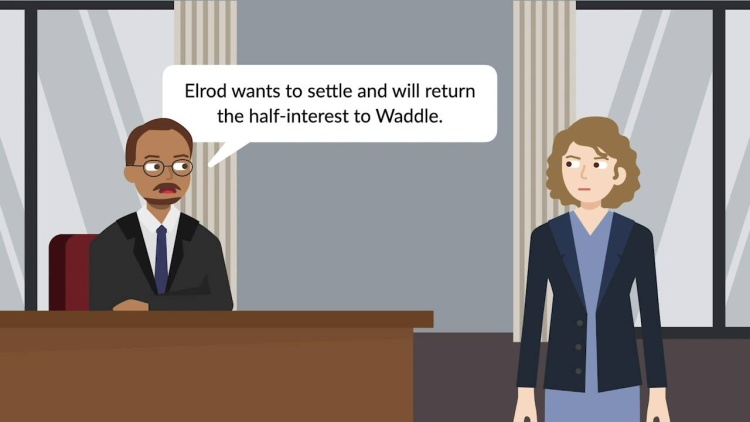Waddle v. Elrod
Tennessee Supreme Court
367 S.W.3d 217 (2012)

- Written by Sean Carroll, JD
Facts
In 2001, Earline Waddle (defendant) conveyed a one-half interest in real property by quitclaim deed to her niece, Lorene Elrod (defendant). In 2007, Waddle contracted to sell part of the property to Regent Investments 1, LLC (Regent) (plaintiff). When Regent learned of the transfer to Elrod, it brought suit against Waddle and Elrod, seeking specific performance of Regent’s purchase contract with Waddle. Regent claimed that Elrod wrongfully obtained her quitclaim deed by way of undue influence. Waddle filed a cross-claim against Elrod, also alleging undue influence. Waddle’s cross-claim contained a legal description of the real property at issue. Regent settled its claim out of court with both Waddle and Elrod. Waddle and Elrod also agreed to settle Waddle’s cross-claim. As part of the settlement, Elrod agreed to transfer the one-half interest in the property back to Waddle. The attorneys for Waddle and Elrod exchanged emails confirming and describing the material terms of the settlement agreement. The attorneys both signed their emails with their names. Three weeks later, however, Elrod changed her mind and refused to sign the final settlement agreement that the attorneys had drafted. Waddle filed a motion seeking judicial enforcement of her settlement agreement with Elrod. The trial court ruled in Waddle’s favor, enforcing the settlement agreement. Elrod appealed, arguing that the settlement agreement was barred by the statute of frauds. The court of appeals rejected Elrod’s argument and affirmed the trial court’s judgment. Elrod appealed.
Rule of Law
Issue
Holding and Reasoning (Clark, C.J.)
What to do next…
Here's why 909,000 law students have relied on our case briefs:
- Written by law professors and practitioners, not other law students. 47,100 briefs, keyed to 997 casebooks. Top-notch customer support.
- The right amount of information, includes the facts, issues, rule of law, holding and reasoning, and any concurrences and dissents.
- Access in your classes, works on your mobile and tablet. Massive library of related video lessons and high quality multiple-choice questions.
- Easy to use, uniform format for every case brief. Written in plain English, not in legalese. Our briefs summarize and simplify; they don’t just repeat the court’s language.





